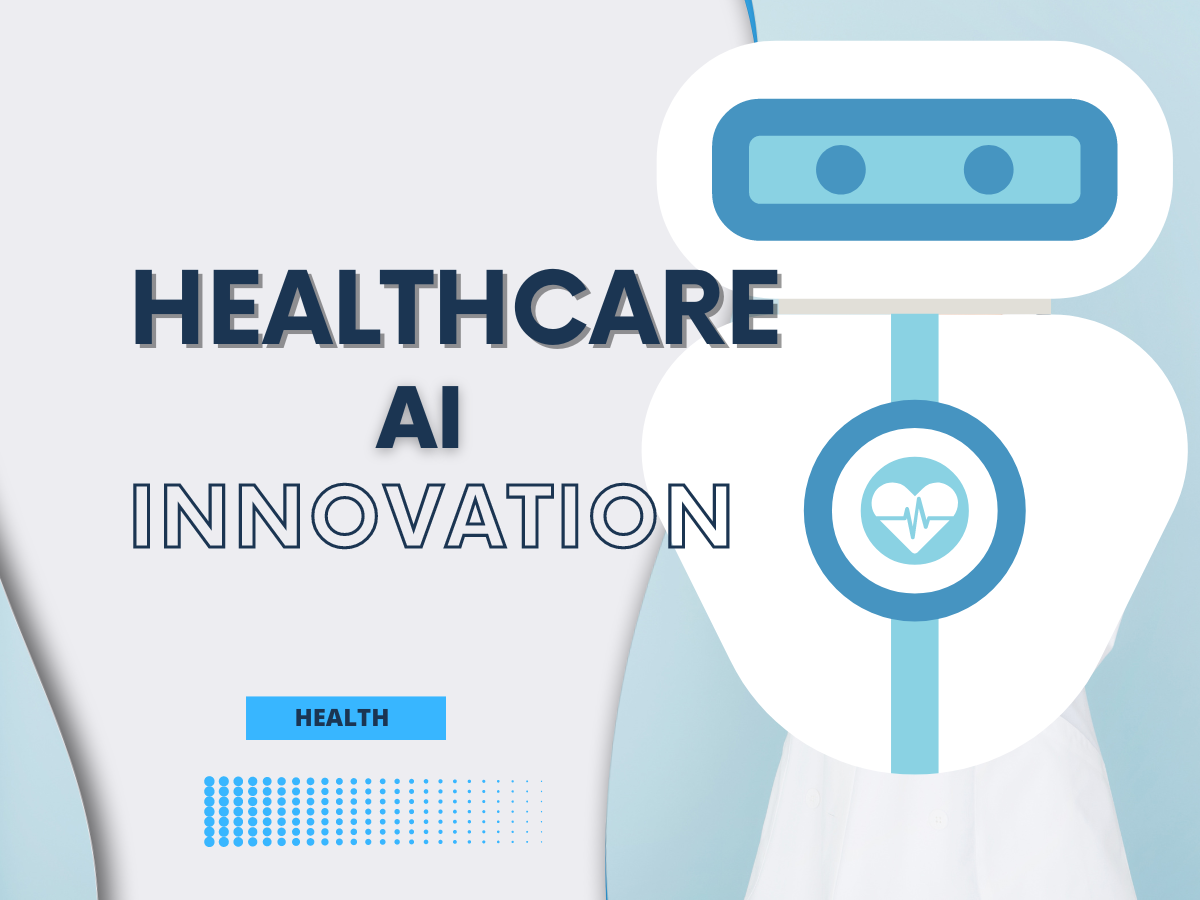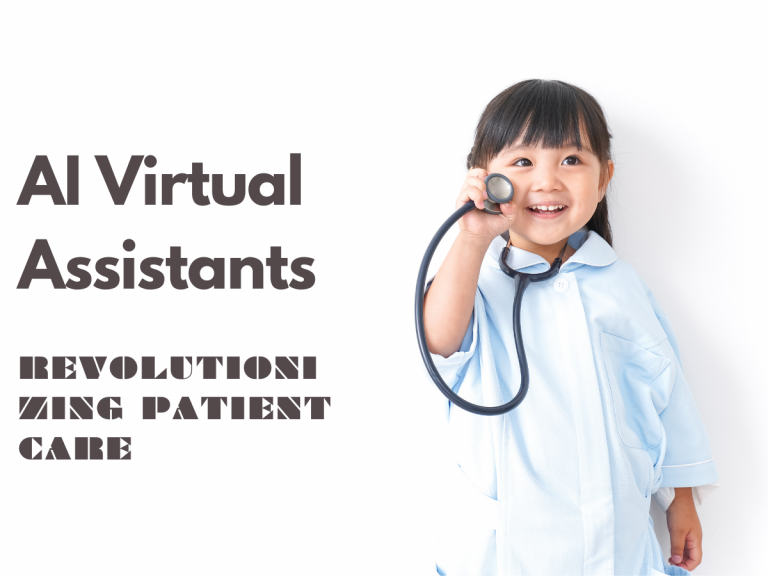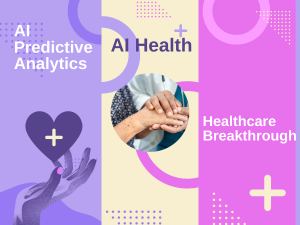1. Introduction
In recent years, AI has emerged as a powerful tool in healthcare delivery, enabling healthcare providers to leverage data-driven insights for better decision-making and patient outcomes. Through machine learning algorithms, natural language processing, and computer vision, AI can analyze vast amounts of medical data, identify patterns, and generate actionable insights. Let’s explore some of the key areas where AI is making a significant impact.
2. AI Applications in Diagnostics and Treatment
2.1 AI-Enabled Imaging
AI algorithms have demonstrated exceptional capabilities in analyzing medical images such as X-rays, CT scans, and MRIs. By training on large datasets, AI models can detect subtle abnormalities and assist radiologists in interpreting images more accurately. This not only expedites the diagnostic process but also improves the early detection of diseases like cancer and cardiovascular conditions.
2.2 Precision Medicine
Precision medicine aims to provide tailored treatments based on individual patient characteristics. AI plays a crucial role in this field by analyzing patient data, genetic profiles, and treatment outcomes to identify personalized treatment approaches. By leveraging AI algorithms, healthcare professionals can predict a patient’s response to specific medications, reducing adverse reactions and optimizing treatment efficacy.
2.3 Drug Discovery and Development
Developing new drugs is a complex and time-consuming process. AI algorithms can significantly accelerate this process by analyzing vast amounts of biomedical data, predicting drug-target interactions, and identifying potential drug candidates. This application of AI holds immense promise for accelerating drug discovery, ultimately bringing new treatments to patients faster.
3. Enhancing Patient Care and Monitoring
3.1 Virtual Assistants and Chatbots
Virtual assistants powered by AI are transforming the way patients interact with healthcare systems. These intelligent systems can provide instant responses to patient queries, offer personalized health advice, and even triage patients based on their symptoms. By leveraging natural language processing, virtual assistants improve patient engagement and help alleviate the burden on healthcare providers.
3.2 Remote Patient Monitoring
AI-enabled devices and wearables allow for continuous monitoring of patients’ vital signs and health metrics outside traditional healthcare settings. These devices can detect early warning signs, track disease progression, and provide real-time feedback to both patients and healthcare professionals. Remote patient monitoring powered by AI enhances patient autonomy and enables proactive interventions.
3.3 Predictive Analytics for Patient Outcomes
AI algorithms can analyze large datasets comprising patient records, clinical notes, and treatment outcomes to generate predictive models. These models can identify patients at high risk of complications, readmissions, or adverse events. By leveraging predictive analytics, healthcare providers can intervene early, personalize treatment plans, and optimize resource allocation, ultimately improving patient outcomes.
4. Improving Healthcare Operations and Efficiency
4.1 Administrative Automation
AI-powered automation streamlines administrative tasks such as appointment scheduling, billing, and documentation. By reducing the administrative burden on healthcare professionals, AI frees up valuable time, allowing them to focus more on patient care and clinical decision-making.
4.2 Resource Allocation and Optimization
AI algorithms can analyze data on patient flow, bed occupancy, and resource utilization to optimize resource allocation within healthcare facilities. By predicting patient demand and optimizing staffing levels, AI helps minimize wait times, enhance operational efficiency, and improve the overall patient experience.
4.3 Workflow Management Systems
AI-powered workflow management systems enable seamless coordination and collaboration among healthcare teams. These systems facilitate the efficient distribution of tasks, real-time communication, and streamlined workflows, leading to improved care coordination and reduced medical errors.
5. Ethical Considerations and Challenges
5.1 Privacy and Security
As AI relies on large volumes of sensitive patient data, ensuring privacy and security is of paramount importance. Healthcare organizations must implement robust data protection measures, adhere to ethical guidelines, and maintain transparency regarding data usage to build patient trust and safeguard confidential information.
5.2 Bias and Fairness in AI Algorithms
AI algorithms are susceptible to biases present in the data used for training. Biased algorithms may perpetuate existing healthcare disparities or lead to incorrect diagnoses or treatment recommendations. To mitigate bias, AI models should undergo rigorous testing, validation, and ongoing monitoring to ensure fairness and accuracy.
5.3 Trust and Transparency
For AI to be widely accepted in healthcare, trust and transparency are crucial. Healthcare providers must communicate how AI is used in decision-making, disclose its limitations, and involve patients in the decision-making process. Transparent and explainable AI algorithms instill confidence in both healthcare professionals and patients.
6. The Future of AI in Healthcare Delivery
The future of AI in healthcare delivery holds immense potential. Advancements in AI technology, coupled with increased data availability and improved computational power, will continue to drive innovation in the field. From personalized medicine to preventive care and optimized healthcare operations, AI will play a central role in shaping the future of healthcare delivery.
7. Conclusion
AI innovation has brought significant advancements to healthcare delivery, revolutionizing diagnostics, treatment, patient care, and healthcare operations. By harnessing the power of AI, healthcare providers can improve patient outcomes, enhance efficiency, and deliver more personalized and accessible care. However, ethical considerations and challenges must be addressed to ensure the responsible and equitable implementation of AI in healthcare.
FAQs
1. How does AI contribute to precision medicine? AI analyzes patient data, genetic profiles, and treatment outcomes to identify personalized treatment approaches, optimizing treatment efficacy and reducing adverse reactions.
2. What are some ethical challenges associated with AI in healthcare? Privacy and security concerns, biases in AI algorithms, and the need for transparency and trust are among the ethical challenges associated with AI in healthcare.
3. How can AI improve patient care and monitoring? AI-powered virtual assistants and chatbots enhance patient engagement, while remote patient monitoring enables continuous monitoring and proactive interventions.
4. What role does AI play in drug discovery and development? AI accelerates the drug discovery process by analyzing biomedical data, predicting drug-target interactions, and identifying potential drug candidates.
5. What does the future hold for AI in healthcare delivery? The future of AI in healthcare delivery is promising, with advancements in technology, data availability, and computational power driving further innovation and improvements in patient care.













+ There are no comments
Add yours